村干部领导方式对村民自治绩效影响的实证研究
VIP免费
浙江财经学院硕士学位论文
I
摘要
从 1980 年村民自治实践诞生于广西宜州合赛村算起,她已经走过了 30 几个
年头。在这历经的 30 余年里,我国农村地区出现了差异较大的村治效果,随着村
民自治实践的深入,在众多影响村民自治效果的因素中,一个非常重要的变量在
村级治理的过程中日益凸现出来,即村干部在村庄管理中表现出来的领导行为。
领导情境理论认为现实中并没有一种万能的、最佳的领导方式可以适用于所
有的环境、组织和人群,各种领导风格惟有放在与之相对应的领导环境或情境中
才最为有效。深受领导情境理论的启发,本文提出了村干部不同的领导方式对村
民自治不同方面的绩效有不同的影响的假设,总结村民自治发展的相关文献,本
文将村干部的领导方式归纳为权威型、民主型、放任型三种类型,选取经济绩效、
政治绩效、社会绩效、公共产品与服务供给绩效四个方面作为衡量村民自治绩效
的指标。
本文的具体假设为:权威型领导与经济绩效显著正相关,权威型领导与政治
绩效、社会绩效以及公共产品与服务供给绩效显著负相关;民主型领导与经济绩
效显著负相关,民主型领导与政治绩效、社会绩效以及公共产品与服务供给绩效
显著正相关;放任型领导对经济绩效、政治绩效、社会绩效及公共产品与服务供
给绩效均无显著影响。
本文参照相关文献与成熟量表并结合研究目的,形成了初始测量量表。在大
规模方法问卷前,进行了小规模访谈与问卷前测,删除垃圾项、净化量表,获得
了精简的问卷。结合山东、河南、安徽、浙江 4 省份的村民自治现状,通过问卷
调查的方式获取了数据,运用 SPSS 以及 AMOS 为软件工具,对获得的数据进行了
描述性统计、数据信度、效度检验,利用结构方程模型等数据分析的方法对理论
假设进行了检验。最终的结论发现,三种类型的领导方式对村民自治绩效不同方
面的绩效有不同影响,其中,民主型领导方式对村民自治四方面均有显著的正向
影响;权威型领导方式与政治绩效中的公民参与绩效及社会绩效间有显著的正向
影响关系;放任型的领导方式对四个方面的绩效均无显著影响。总结实证研究结
果,本文对村庄治理实践提出的参考性建议为:村干部针对不同的村级事务采取
适宜的领导方式,将能取得更高的绩效水平。在发展农村经济方面,民主型领导
风格更合适使用;在提高政治绩效、社会绩效以及公共产品与服务的供给绩效方
面,村干部应灵活运用权威与民主型领导风格,宽严相济、刚柔并施;村干部应
关注村级事务、加强沟通,避免放任型领导风格。
本文的创新之处在于,在文献研究以及实际调查分析的基础上,以村干部领
浙江财经学院硕士学位论文
II
导方式为切入点研究村民自治绩效;通过实证分析揭示了村干部权威型、民主型、
放任型领导行为对村民自治绩效不同方面的影响。
本文的相关结论,不仅验证了村干部领导方式对村民自治绩效的影响,丰富
村民自治绩效影响因素研究的理论成果,同时为村干部领导村民有效治理村庄和
调整自己的领导行为方式,促进村庄稳定、和谐发展提供了实际参考建议。
关键词:村干部;权威型领导;民主型领导;放任型领导;村民自治绩效
浙江财经学院硕士学位论文
III
ABSTRACT
The practice of village autonomy began in Hesai Villiage Yi State Guangxi
Province. It has been more than 30 years. The rural area appeared the difference of
governance effect in our country after thirty years. With the practice of villagers'
autonomy development, the leadership behaviors of village cadres become more and
more important in many effect factors along.
The core viewpoint of the Situational Leadership Theory is that there is no the best
leadership style in in real life. Leadership style is placed in the corresponding leadership
environment or situation is most effective. Inspiring by Situational Leadership Theory
and summering of the related literature of villager autonomy, the paper puts forward
hypothesis that is the influence different leadership styles on different aspects of the
villagers' autonomy performance is different. The paper summers up the style of
leadership of village cadres as the autocratic leadership, the democratic leadership and
the laissez-faire leadership. The paper selects the economic performance, the political
performance, the social performance and performance of the supply of public products
as four indexes that measure villager autonomy performance.
The specific hypotheses of this paper is that the authoritarian leadership is
significantly positive related to the economic performance, while it is significantly
negative related to political performance, social performance as well as public product
and service supply performance. The democratic leadership is significantly negative
related to the economic performance, while it is significantly positive related to political
performance, social performance as well as public product and service supply
performance. Laissez-faire leadership on economic performance, social performance,
political performance and public product and service supply performance showed no
significant influence.
In this paper referencing the related literature and maturity scale forms the initial
scale. In a large-scale interview before, the paper conducts the small scale interview and
questionnaire pre-test, deletes spam, cleaning scale and obtains a streamlined
questionnaire. Theoretical hypotheses are examined through employing the statistical
tool SPSS and AMOS, in which research samples comes from Shandong Province,
Henan Province, Anhui Province, Zhejiang Province through the method of
questionnaire. The main conclusions of our study are as follow: The different leadership
styles on different aspects of the villagers’ autonomy performance are different. The
浙江财经学院硕士学位论文
IV
democratic leadership has a positive impact on four aspects, the autocratic leadership
has a positive impact on citizen participation performance and social performance, the
laissez-faire leadership has no significant effect on villager autonomy performance.
This paper gives the suggestion is that in the development of farmers' economy
democratic leadership style is more suitable to use. Improving the political performance,
the social performance and performance of the supply of public products should
applicant autocratic leadership and democratic leadership flexibly. Village cadres
should avoid using the laissez-faire leadership style.
Innovation in this paper: on the basis of literature studies and field surveys, it
studies performance of the villagers' autonomy from the leadership of the village cadres;
it proves the authoritative leadership, the democratic leadership and the laissez faire
leadership of village cadres have different effects on different aspects of the
performance of the villagers' autonomy.
The conclusions and findings of our study not only rich the theoretical results of
related research of villager autonomy performance, but also contribute the village cadres
to adjust their leadership behavior and govern village effectively, further more it
provides practical recommendations for the village management.
Keywords: village cadres; autocratic leadership; democratic leadership; laissez-faire
leadership; villagers' autonomy performance
浙江财经学院硕士学位论文
V
目录
第 1 章 绪论........................................................ 1
1.1 选题背景与问题提出 ........................................... 1
1.2 研究意义 ..................................................... 2
1.3 研究目的、内容与方法 ......................................... 3
1.4 研究的创新之处 ............................................... 4
1.5 论文的结构安排 ............................................... 4
第 2 章 文献综述 ..................................................... 6
2.1 村民自治绩效文献综述 ......................................... 6
2.2 领导理论研究综观 ............................................. 9
2.3 研究启示及本文探索方向 ...................................... 17
第 3 章 理论基础与假设提出 .......................................... 21
3.1 理论基础 .................................................... 21
3.2 研究假设提出 ................................................ 24
第 4 章 问卷设计与小样本测试 ........................................ 32
4.1 问卷形成步骤 ................................................ 32
4.2 变量定义与测量题项设计 ...................................... 33
4.3 样本调研 .................................................... 35
4.4 问卷前测 .................................................... 36
第 5 章 数据获取与数据评估 .......................................... 49
5.1 样本调查与数据收集 .......................................... 49
5.2 数据的信度效度检验 .......................................... 50
第 6 章 假设检验与结果分析 ......................................... 60
6.1 基于结构方程的假设检验 ...................................... 60
6.2 假设检验结论 ................................................ 66
第 7 章 研究结论与讨论 ............................................. 70
7.1 研究结论与讨论 .............................................. 70
7.2 实际建议 .................................................... 74
7.3 研究局限性 .................................................. 76
7.4 研究未来发展方向 ............................................ 76
参考文献 ........................................................... 78
附录 ............................................................... 84
后记 ............................................................... 85
致谢 ............................................................... 86
附表 ............................................................... 87
浙江财经学院硕士学位论文
1
第1章 绪论
1.1 选题背景与问题提出
1.1.1 选题背景
1978 年冬安徽小岗村的“破冰”之举揭开了中国农村经济体制改革的序幕,
随着家庭联产承包责任制的推进,包产到户的实行给延续了 26 年(1958-1984)
的人民公社体制以巨大冲击,并最终导致了这一体制的土崩瓦解。在这种背景下,
一种新型的群众性自治形式开始在农村萌生,1980 年春广西壮族自治区宜州市
屏南乡合寨村村民选举产生了中国第一个村民委员会,敲响了中国村民自治的开
场锣鼓,自此这场“静悄悄的革命”在中国农村地区展开了。
从1980 年村民自治实践诞生于广西宜州合赛村算起,她已经走过了 30 几个
年头。到目前为止,村民自治尤其是民主选举确实取得了一些令人鼓舞的成果,
据民政部公布数据显示,从 2011 年起,近 6亿有选举权的农村参与了新一轮村
委会换届选举,农民群众表现出较高的参与热情,全国平均参选率在 80%以上,
有的地方高达 90%,截止到 2011 年12 月全国有村委会 59 万个,选举产生的村
干部有 230 万名,目前全国大部分省份开展了 8轮以上的村委会换届选举工作,
并且取得了良好的成效。这些数据仅表明我国农村地区民主选举取得了较大进
展,但并不能充分地体现村民自治的最终效果。
那么村民自治实践的成效如何呢?学者们观点大相径庭,徐勇、项继权
(2008)、张厚安(2008)、哈战荣(2004)等人认为村民自治实践成效显著。而
冯仁(2011)、杜威漩(2011)等学者确认为村民自治走进了死胡同。
影响村民自治绩效的因素有哪些呢?吴俊霞(2009)从经济、制度、法制、
民主意识、宗族势力等方面分析村民自治效果悬殊的原因。杨术友、聂应德(2010)
从乡土观念入手分析了其与村民自治绩效间的关系。何葛军(2008)关注了农村
精英的外流对村庄治理的影响,除了这些因素外是否还有其他因素影响村民自治
效果呢?
上述这些悬而未决的疑问与争议是明晰村民自治现状、明确其未来发展方向
亟需解决的问题。
1.1.2 问题提出
明晰村民自治绩效、深入挖掘其影响因素是当前学界以及农村政策制定者普
遍思考的问题。在村民自治历经的 30 余年里,我国农村地区的变化差异显著,
有的村庄脱平致富,村民安居乐业,各项事业发展欣欣向荣,成为全国优秀村集
体,如华西村、窦店、南街村、袁家村等全国知名优秀村集体;有的村庄仍旧平
摘要:
展开>>
收起<<
浙江财经学院硕士学位论文I摘要从1980年村民自治实践诞生于广西宜州合赛村算起,她已经走过了30几个年头。在这历经的30余年里,我国农村地区出现了差异较大的村治效果,随着村民自治实践的深入,在众多影响村民自治效果的因素中,一个非常重要的变量在村级治理的过程中日益凸现出来,即村干部在村庄管理中表现出来的领导行为。领导情境理论认为现实中并没有一种万能的、最佳的领导方式可以适用于所有的环境、组织和人群,各种领导风格惟有放在与之相对应的领导环境或情境中才最为有效。深受领导情境理论的启发,本文提出了村干部不同的领导方式对村民自治不同方面的绩效有不同的影响的假设,总结村民自治发展的相关文献,本文将村干部的...
相关推荐
-
建筑工程投标文件范本-(格式)VIP免费
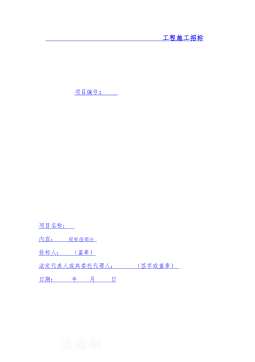
 2024-11-22 17
2024-11-22 17 -
幕墙工程施工组织设计方案VIP免费
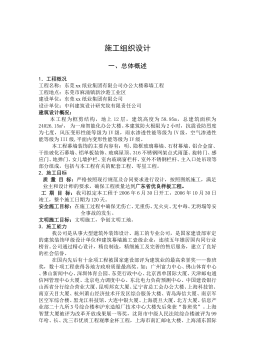
 2025-01-09 6
2025-01-09 6 -
建筑商品砼生产项目创业计划书VIP免费
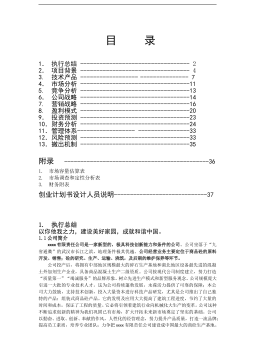
 2025-01-09 10
2025-01-09 10 -
建筑工程商业计划书模板VIP免费
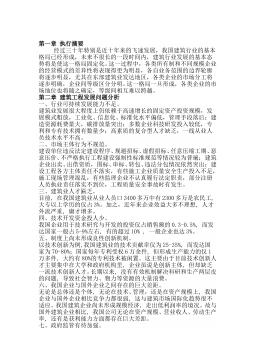
 2025-01-09 8
2025-01-09 8 -
工程项目施工计划书VIP免费
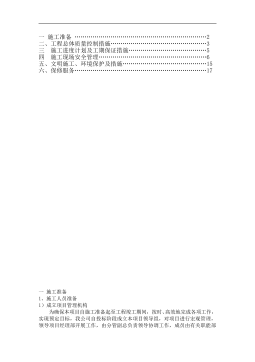
 2025-01-09 6
2025-01-09 6 -
《专业型文档》建筑企业计划书VIP免费
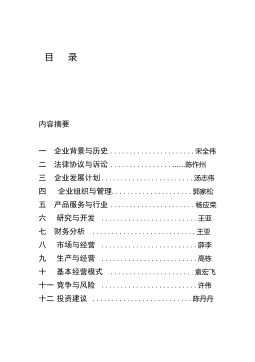
 2025-01-09 8
2025-01-09 8 -
xx水库灌区管道工程水工图纸C1VIP免费

 2025-01-09 13
2025-01-09 13 -
邮政区域仓储配送中心VIP免费
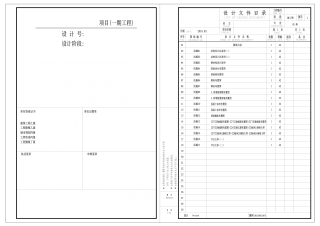
 2025-01-09 8
2025-01-09 8 -
疾病预防控制中心招标文件VIP免费
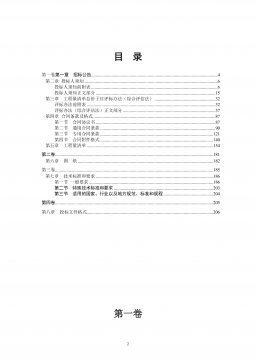
 2025-01-09 13
2025-01-09 13 -
体育健身中心施工招标文件VIP免费
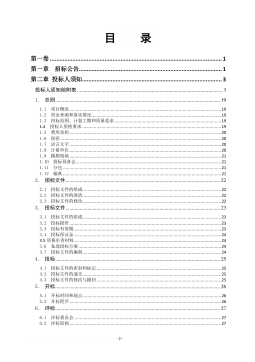
 2025-01-09 10
2025-01-09 10
作者:周伟光
分类:高等教育资料
价格:15积分
属性:88 页
大小:2.1MB
格式:PDF
时间:2024-09-29






